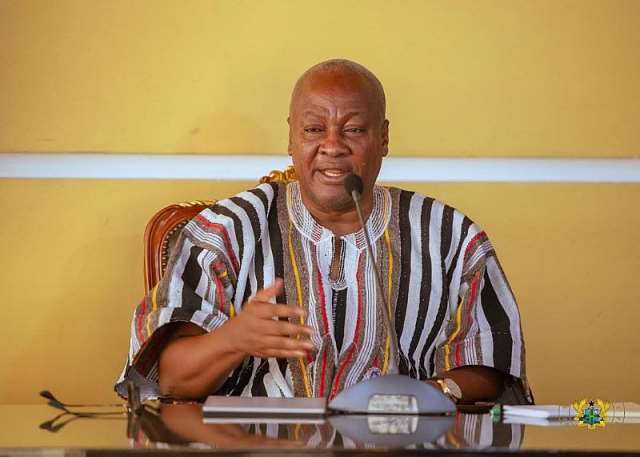Listen to the article
In a bold diplomatic move, Ghana has become the first African nation to financially support the International Fund for Public Interest Media (IFPIM), positioning itself at the forefront of global efforts to combat misinformation and disinformation. President John Dramani Mahama made this commitment during a high-level international conference in Paris on October 29, 2025, where he emphasized the critical importance of independent journalism in preserving democratic values.
“Independent journalism and credible information are indispensable public goods,” President Mahama stated during the summit, which culminated in the endorsement of the “Paris Declaration on Multilateral Action for Information Integrity and Independent Media.” This declaration reinforces global commitments to protecting free, pluralistic, and trustworthy information ecosystems.
The timing of Ghana’s commitment is significant, as the country grapples with its own challenges related to misinformation. A recent report by the Ghana Fact Checking Coalition revealed that 21.1% of election-related disinformation during Ghana’s 2024 polls specifically targeted President Mahama himself. The report further highlighted how political actors, partisan media outlets, and social media networks have contributed to the spread of misleading narratives for propaganda purposes.
Ghana’s media landscape faces increasingly sophisticated challenges, with AI-generated audio, synthetic media, and deepfakes complicating verification efforts for journalists and fact-checkers. President Mahama has previously acknowledged these emerging risks to African democracies and media environments, noting that the rise of AI-driven disinformation presents unprecedented challenges.
“Ghana’s democracy depends on a strong, responsible media,” Mahama has stated in earlier remarks, establishing a normative foundation for media reform in the country. His Paris engagement signals a commitment not only to countering false information but also to investing in media systems that support journalism as a public good.
For Ghanaian journalists and media houses, this international commitment brings both opportunities and responsibilities. Media organizations are now expected to deepen their fact-checking and verification practices, uphold higher ethical standards, maintain transparency, resist political pressures, and engage proactively with digital literacy initiatives and AI-related risks.
Industry analysts anticipate that Ghana’s participation in international initiatives like IFPIM will open doors for increased access to training and resources focused on verification and combating disinformation. Media professionals should also expect clearer institutional safeguards for press freedom and journalist safety, especially in digital spheres vulnerable to disinformation-related threats.
The Paris initiative emphasizes transparency and accountability, suggesting that Ghana’s media houses will need to adopt or strengthen codes of conduct, corrections policies, and disclosure protocols regarding ownership and editorial influences. This aligns with global best practices for media integrity and could significantly enhance public trust in Ghanaian journalism.
Experts also highlight that combating disinformation requires a collaborative approach. Effective partnerships between media organizations, fact-checkers, digital platforms, and civil society will be pivotal in Ghana’s context. Journalists are increasingly expected to not only report news but also to help build audience resilience to false information by explaining disinformation tactics, promoting healthy social media habits, and contextualizing political narratives.
However, potential pitfalls remain. There’s a risk that media reform initiatives could become overly regulated under the guise of “information integrity,” potentially constraining press freedom rather than protecting it. Media houses with partisan ties or weak editorial independence may face a credibility crisis if they fail to reform as public standards rise following the Paris commitments.
Another concern is that journalists might become mere “repeaters” of official narratives in the name of fighting disinformation, abandoning their critical watchdog function. Additionally, digital threats evolve rapidly, and there’s uncertainty about whether resources for media organizations will keep pace with these emerging challenges.
The rapidly changing media landscape requires agility from Ghanaian journalists. As AI technologies advance, the line between authentic and fabricated content continues to blur, creating an urgent need for sophisticated verification tools and training. Ghana’s financial contribution to IFPIM positions the country to access these resources, but implementation will require sustained commitment from both government and media stakeholders.
President Mahama’s address in Paris represents a pivotal moment for Ghana’s media ecosystem. His framing of misinformation and disinformation as both national and international challenges, coupled with Ghana’s entry into global media integrity mechanisms, creates momentum for meaningful change in how information is produced, shared, and consumed in the country.
For Ghanaian journalists and media organizations, expectations are rising. The challenge now extends beyond merely exposing falsehoods to embodying and sustaining a robust, ethical, and independent media environment that serves as a bulwark against manipulation and misinformation in the digital age.
Verify This Yourself
Use these professional tools to fact-check and investigate claims independently
Reverse Image Search
Check if this image has been used elsewhere or in different contexts
Ask Our AI About This Claim
Get instant answers with web-powered AI analysis
Related Fact-Checks
See what other fact-checkers have said about similar claims
Want More Verification Tools?
Access our full suite of professional disinformation monitoring and investigation tools



